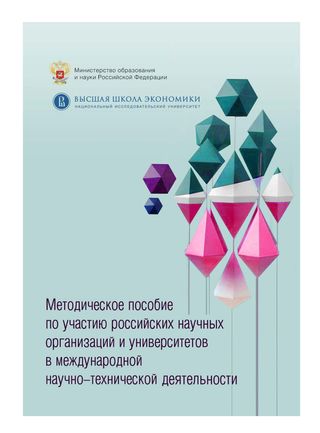Book
Методическое пособие по участию российских научных организаций и университетов в международной научно-технической деятельности
The brochure provides an overview of methodological and practical aspects of Russian scientific organisations and universities' participation in international science and technology (S&T) cooperation. The methodological manual offers a systematized approach to conducting international collaboration and contains reference information on S&T potenatial and S&T cooperation programmes of selected foreign countries.
The research leading to these results has received funding from the Ministry of Education and Science of the Russian Federation in the framework of the project “Development of Instruments for Methodological, Information and Analytical Support of Russia’s Scientific Organizations and Universities’ Participation in International Science and Technology Cooperation” (Subsidy Agreement no 14.602.21.0013 dated August 3, 2016 with the Russian Ministry of Education and Science in the framework of the federal targeted programme “Research and Development in Russian Priority S&T Development Areas in 2014–2020”, unique identification number – RFMEFI60216X0013).
